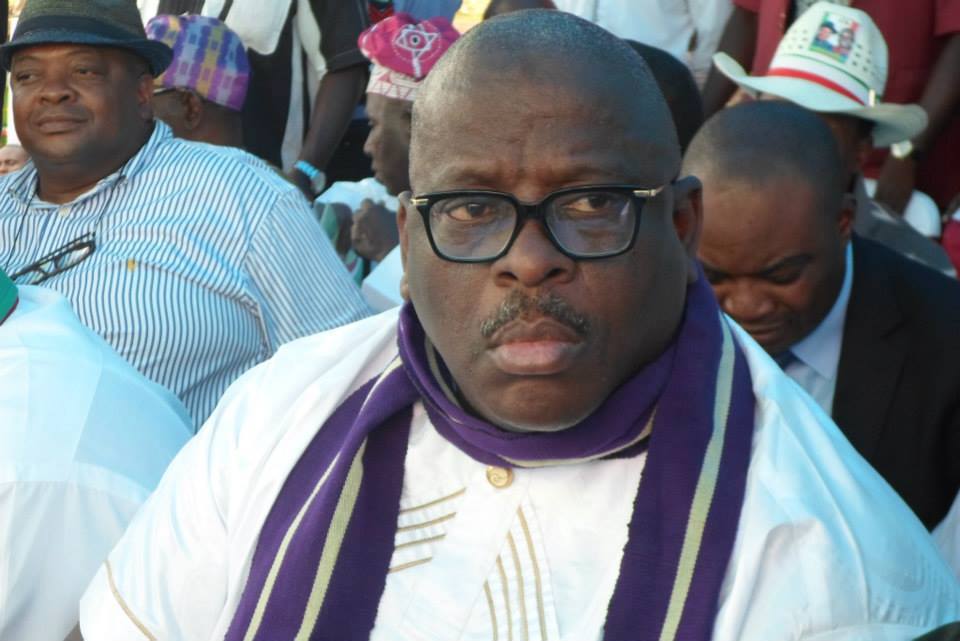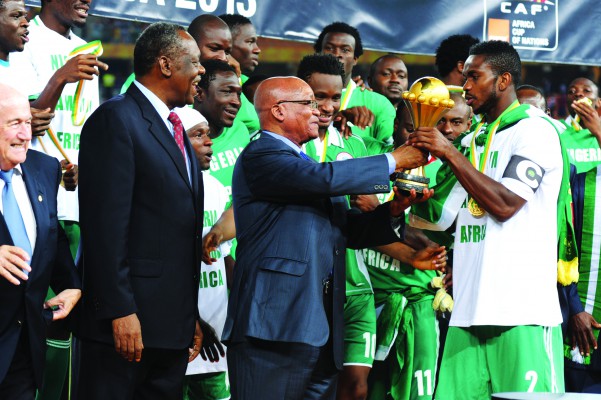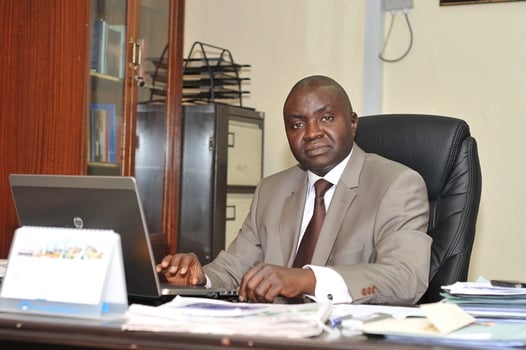Every election year comes with its own peculiar issues and talking points, but you can be sure there is a topic that never goes away: zoning and power rotation. At the federal level, we are hearing less of power rotation this year, although it is obviously a major factor in the opposition to President Goodluck Jonathan in the core North. That is why the All Progressives Congress (APC) will not even make the mistake of giving its presidential ticket to a Southerner. It will fail spectacularly. However, the mitigating point this year is that the debate is centred on the performance of President Goodluck Jonathan, unlike in 2011 when it was unapologetically ethno-religious. We are making progress.
At the state level, meanwhile, zoning and rotation are still well pronounced. It could be on the basis of senatorial district, ethnicity or religion. Ethnic and religious minorities are clamouring to be given a chance, while zones that have not produced governors before are saying they also deserve a fair look-in. The very notion of quota system and federal character, which have been ridiculed and held responsible for Nigeria’s underdevelopment, were designed not just to protect the disadvantaged but also to create a melting pot, politically speaking, and provide a sense of belonging to the component units of a geographical entity. It gives every group a stake so that they can protect the system together, knowing that if it fails, everyone stands to lose something.
For the record, I’m not against zoning and power rotation ─ assuming no law is broken in the process of implementing it. I’ve always argued that in a diverse society, you cannot build a sense of community when people look at the line-up and cannot find their kith and kin in it. If you go to a government office and everybody there is speaking the same language or dialect, I don’t know how delighted you would be. Also, I oppose this notion that rotation and merit cannot go hand in hand. I’ve always framed my argument thus: there is no ethnic group, religion, state or region that does not have competent people. The trick is to put your best foot forward when it is your “turn”.
In all the clamour for equity and fairness in the political game in Nigeria, one state that has continued to baffle me is Delta. It is overly dominated by the Urhobo, and I believe they have the numbers to determine who would be governor ─ just like the Igala in Kogi and Tiv in Benue. But Delta has managed to play the balancing game quite well. From 1999-2007, it was an Urhobo, James Ibori, that ruled the state. He worked for the success of an Itsekiri, Emmanuel Uduaghan, in 2007. And now the Igbo, also known as Anioma, are being positioned to produce the governor next year. By then, the three senatorial districts would have held power.
Advertisement
As to the relationship between zoning and merit, Delta North, or Anioma, boasts some of the most qualified and most competent people you will find anywhere in Nigeria. It is a land of giants in every field of human endeavour. That is why it is ridiculous for anyone to claim that zoning and merit are mutually exclusive. Zoning, if anything, can create a space for those who may, ordinarily, not get a chance because they are minorities. At this stage of our democracy, if you throw the game open all the time, chances are that nine of 10 times, the majority groups will take it. I believe we will still get to the stage where ideas and personalities will decide election outcomes, but we are not there yet.
Rotation and zoning can actually be a win-win balancing game, depending on how it is played out. In Delta, for instance, the leading aspirants in the PDP parade very impressive pedigrees. The resume of the clear favourite, Mr. Anthony Chuks Obu, does not in any way suggest that merit will be sacrificed. Academically, he is a product of the University of Ife, where he had BA Arts (Combined Honours) in History and Political Science. He also holds a Master’s degree in Industrial and Labour Relations from the University of Ibadan. You can, therefore, not say he lacks education. In public service, he rose through the ranks to the position of permanent secretary, having been a civil servant for most of his life. He served in various roles in various ministries, making him a rounded public servant.
Obuh can conveniently campaign on the basis of his qualifications and experience. He can market himself on the ground that he is bringing his vast public service experience into the chief executive position. You cannot argue against that. Mind you, he has quality opposition from within his party. The roll-call is very remarkable: former Special Adviser to the President on Performance, Monitoring and Evaluation, Professor Sylvester Monye; former Secretary to the Government of Delta State, Senator Arthur Okowa Ifeanyi; a member of the House of Representatives, Hon. Ndudi Elumelu; billionaire businessman, Mr. Peter Okocha; and entrepreneur, Mrs Ngozi Olejeme. Whoever gets the ticket, you cannot claim zoning has destroyed merit.
Advertisement
Some other states are also waking up to the fact that minorities must be given a fair chance in the interest of equity. The majority groups may be tempted to throw their weight around all the time, but you do not want a society where people feel oppressed, disgruntled and bitter. You do not want mutual distrust and entrenched resentment in a human community hoping to make progress. Although there are several states where those who call the shots are determined that nobody from any other religion or ethnic group or senatorial district will ever be allowed to become governor, the good news is that it is not a nationwide mentality.
One other thing I find very difficult to understand is when people campaign for something at the federal level, but at the state level they do not want to hear anything of such. I was discussing with a friend from Enugu recently. We got intensely debating the value of federal character and power rotation. After campaigning vigorously against rotation at the federal level “because it breeds mediocrity”, he got himself entangled in an unwanted web when we started discussing politics in his home state. He hails from the Nsukka axis, and was soon talking about how his senatorial district had not produced a governor since 1999.
“It is only fair that it should be our turn in 2015,” he said, ignoring the irony of his own logic.
“I thought you are against ‘my turn’. You just complained about it at the federal level,” I said.
Advertisement
He laughed and said: “No. No. No. We have qualified people in Enugu North too. I support rotation in this instance.”
I challenged him to name one state in Nigeria that does not have qualified people to rule Nigeria. He could not. There is no single state that has not produced doctors, engineers, political scientists, accountants, journalists, professors, architects, name them. To equate socio-political equity and fair play with mediocrity is unhelpful. There is merit everywhere. Our concern should be how to enthrone merit whether we go for an “open contest” or a “controlled competition”, as we see in zoning. It could be a win-win balancing game, after all.
AND FOUR OTHER THINGS…
ATTENTION, ALEX BADEH
Recently, the JTF in the Niger Delta said it had destroyed a depot for stolen crude and burnt two thieving trucks in Eleme, Rivers state. However, the initial euphoria has died down, with allegations emerging that it was not an illegal depot. It actually belongs to a licensed company, Excel Exploration and Production Company Limited. It is alleged that although the company had all the necessary documentation, they became a victim of JTF’s jungle justice and publicity blitz because they refused to “settle” as demanded. The Chief of Defence Staff, Air Chief Marshall Alex Badeh, must investigate this thoroughly. Justice.
Advertisement
BUHARI OR ATIKU?
This week is going to be very crucial to the 2015 presidential election as APC picks its candidate. On paper, the top contenders are Gen. Muhammadu Buhari and Alhaji Atiku Abubakar ─ two battle-tested politicians. I’ve never hidden my soft spot for Buhari ─ a rare Nigerian politician with integrity ─ but I’m wise enough to know that this is going to be a titanic battle. But who would APC delegates pick? Buhari, who has an intimidating, fanatical support up North? Atiku, who has a way of galvanising support when you think he is down and out? Intriguing.
Advertisement
SCARE FOR TINUBU
Asiwaju Bola Tinubu survived a major scare on Thursday when his “boys” ganged up against him in the Lagos APC governorship primary. In the end, he prevailed, with his preferred candidate, Akinwunmi Ambode, thrashing the rest in a very convincing manner. This is the first time Tinubu has faced serious opposition from within his camp. That he prevailed shows that he is still the master of the game. However, two points must be noted: one, there are now bruises within which may heal or not heal for a while; two, next time around, internal dissent could wax much stronger. Signals.
Advertisement
CORRUPTION PERCEPTION
In 1999, Nigeria was rated the world’s second most corrupt country by Transparency International. Many Nigerians wondered why any country could beat us to the crown! But we got it “right” in 2000: Nigeria was officially crowned the most corrupt country in the world! We slipped to second position in 2001 and remained consistent till 2004. We have improved ever since. The latest ranking places us at 136 out of 175 countries surveyed ─ our best in recent times. Ultimately, it is about perception, which may not be the reality. But we should be encouraged to do better. Hopefully.
Advertisement
Add a comment





